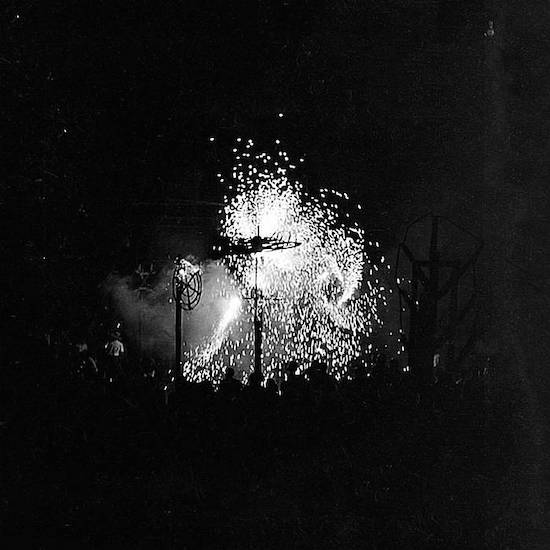This group, from Zaragoza in the north of Spain, don’t appear to enjoy any great domestic profile or have the aggressive marketing nous to create one, nor are they part of any obvious movement or scene of like minds. Spinda, an indie label from the south of the country who’ve released Celebración Del Trance Profano, say “We love great bands making noise!” by way of a motto. Only with this album, Les Conches Velasques’ second, can it be called a band per se: previously, on a self-titled Bandcamp EP from 2018 (later turned into an LP from 2020 by adding two songs), everything was played and sung by Pablo Jiménez. Now, he’s one part of a quartet, but LCV’s hypno-disco punk-funk exaltations develop apace and add up to some of the most interesting rock music of the year so far.
My introduction to LCV came via one of the new members, Thomas House, who played in enough Brighton bands for me to call him “a mainstay of its DIY community” or somesuch (Sweet Williams, his solo alias, has been reviewed on tQ by myself and others) but moved to Zaragoza a short while back. He’s not effected any profound changes to the project’s broad vibe – I mean this in a positive way: Jiménez had already hit on something worth pursuing in good faith – but the guitar on ‘W’, at the album’s centre, soars like any number of Dischord Records bands from the 1990s, which wasn’t apparent before.
Elsewhere, though, Celebración Del Trance Profano faces away from Western rock for its inspirations. There are three “adaptions” on the eight-song album, opener ‘Cosas De Usar’ being derived from Moroccan musician Hamid Alemmou; he was not, as far as I can tell, much given to sub-four-minute guitar numbers, but Jiménez’s deep, almost scholarly voice and an abundance of handclaps maintain a connection with the source. Later, ‘M. Mouma’ again thumbs a lift to Morocco to quasi-cover Casablancan psych veterans Nass El Ghiwane – in practise, the song is fairly thoroughly reseeded (indeed where the resemblance between Les Conches Velasques and The Ex, especially after they connected with the Ethiopian music scene, comes through most strongly).
The band draw on the folk art of their homeland too, though. ‘Laurel’ is sourced from Agapito Marazuela, a folk collector during most of the 20th century, and as on Les Conches Velasques, Jiménez borrows verse from Pedro Salinas, a revered Madrid poet who died in 1951. All of which is useful in trying to gauge what makes this outfit tick, but you’re fine to treat it as window dressing for the essential listening experience. The production is slightly slicker, now LCV are a band not a solo act; these fuzzy, droney constructs aren’t postpunk or Afrofunk or electric folk, but all those things are in the orbit of a really special release.


